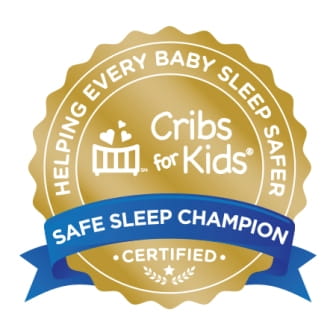Care for childhood sleep disorders
When your child has a sleep disorder, it can affect their physical and emotional health. At Studer Family Children's Hospital Pediatric Sleep Center at Ascension Sacred Heart in Pensacola, Florida, your child and family are connected to diagnostic testing and a multispecialty care team experienced in treating sleep disorders in newborns to age 21. Our sleep center is accredited with the American Academy of Sleep Medicine. Your child’s doctor listens to understand your concerns about your child’s breathing, napping, and nightly sleep routine. Then, we work with you to create a care plan that helps improve your child’s quality of sleep. Your child’s doctor may recommend a diagnostic sleep study to help determine if your child has a sleep disorder. These tests can also help determine if a sleep disorder is affecting your child’s heart, lungs, and brain.
Symptoms of a sleep disorder may include excessive daytime sleepiness, irritability, behavior problems, and learning difficulties. Our pediatric sleep doctors specialize in treatments for pediatric sleep disorders, including:
- Difficulty falling asleep (insomnia)
- Difficulty staying awake (narcolepsy)
- Jerky legs while sleeping (periodic limb movement disorder)
- Restless leg syndrome (while awake)
- Sleep apnea
- Sleepwalking and night terrors (parasomnia)
Diagnostic tests and treatments for pediatric sleep disorders
Treating a pediatric sleep disorder is different from treating an adult with a sleep condition. We provide a range of tests and treatment options, including:
- Daytime sleepiness testing (MSLT)
- Daytime sleep study of positive airway pressure ( PAP-NAPS)
- Home sleep study testing
- Measure and adjust CPAP/BiPAP air pressure
- Nighttime sleep seizure monitoring
- Obstructive sleep study (Auto SV)
- Oxygen evaluation testing
- Sleep study (polysomnography recording)
- Ventilatory treatment both air volume and pressure study (AVAPS)
- Wakefulness testing (MWT)
Some sleep disorders may be related to other physical or emotional health conditions. If your child needs additional care, we connect your family with the right specialists at Studer Family Children’s Hospital.
National Safe Sleep Hospital Certification
Studer Family Children’s Hospital is awarded the Gold Safe Sleep Champion Certification by Cribs for Kids’. The National Safe Sleep Hospital Certification program recognizes hospitals and hospital systems for their commitment to infant safe sleep to reduce the risk of sudden unexpected infant death (SUID), accidental suffocation and strangulation in bed (ASSB), sudden infant death syndrome (SIDS), and unsafe sleep injuries.

Best practices for safe sleep
The American Academy of Pediatrics, and as a certified Safe Sleep Hospital, we provide education and guidance to parents and caregivers on safe sleep practices. We educate parents and caregivers on best infant sleep safety practices and education with the community. Guidance for safe sleeping includes these recommendations:
Alone—Share your room, not your bed. Your baby should not sleep with others in a bed, on a couch, or in a chair.
Back—Your baby should sleep on his or her back in a safety-approved crib on a firm mattress during naps and at nighttime.
Crib—The crib should be empty. Remove all loose bedding, comforters, quilts, stuffed animals, bumpers, wedges, and pillows from your baby's crib.
To ensure your baby sleeps safely, follow the ABCs of safe sleep.
